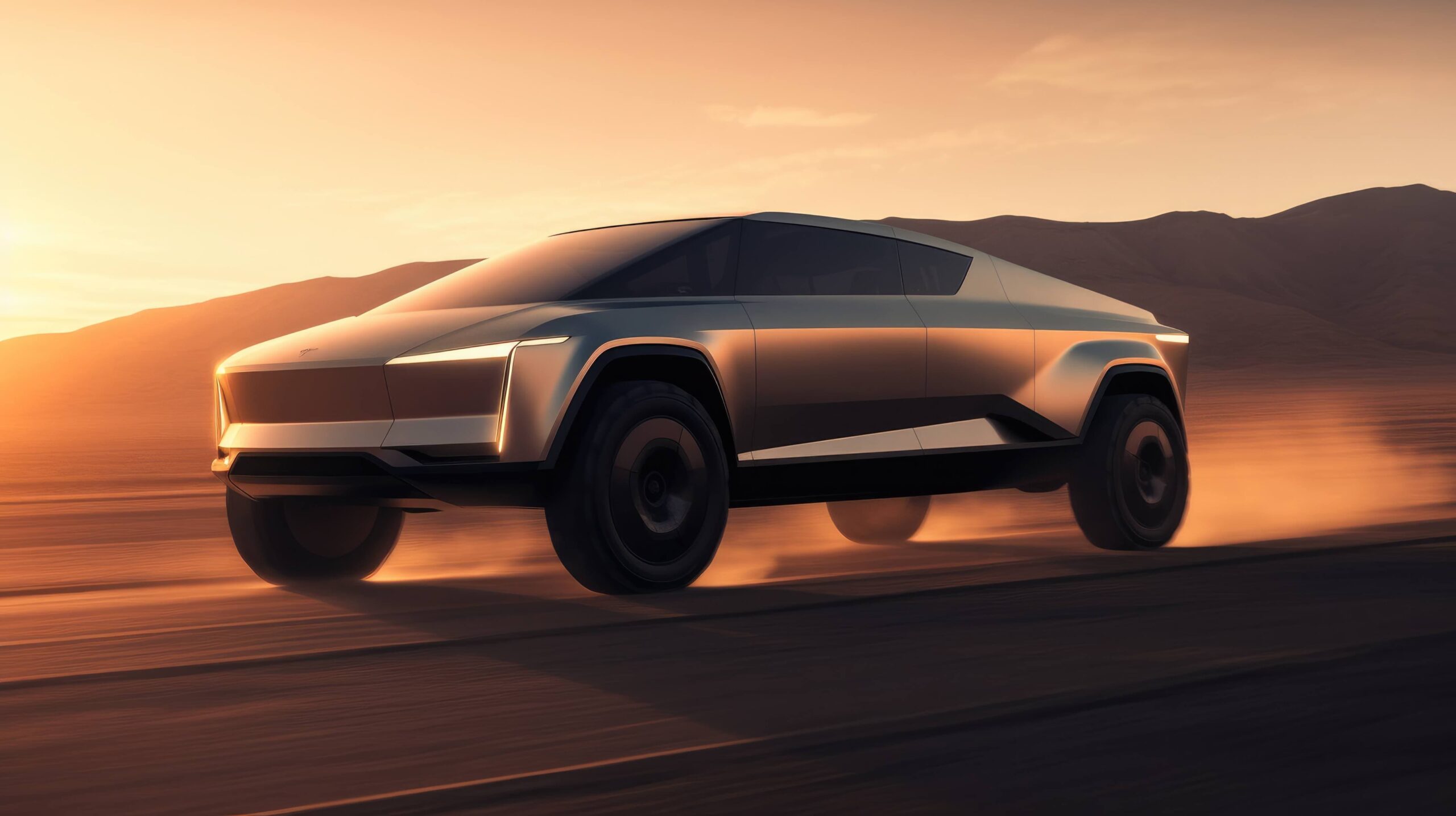Tesla’s much-hyped Cybertruck launch has stalled amid concerns about profitability admissions, design criticisms, and lagging specifications. Meanwhile, emerging rival Rivian notched a key victory at the grueling Rebelle Rally competition, denting Tesla’s aura of EV invincibility.
The contrasting events signal cracks in Tesla’s supremacy as traditional automakers and startups alike charge into the electric vehicle market. With the Cybertruck struggling to get off the starting line, Tesla risks falling behind competitors leveraging innovation to carve out EV niches it once dominated.
Touted since its 2019 reveal, Tesla’s Cybertruck recently hit major roadblocks. In the company’s third-quarter earnings call, Elon Musk acknowledged the futuristic pickup would be challenging to manufacture at scale and may take up to 18 months before turning a profit.
This admission startled investors already skeptical of the Cybertruck’s unconventional design aesthetic diverging from typical truck buyer preferences. Reviewers have also highlighted the vehicle’s lagging range and towing capabilities compared to rival EV trucks from Rivian, Ford, and GM.
With the long-promised Cybertruck failing to live up to lofty expectations, Tesla’s grip on the bourgeoning electric pickup market appears shakier than ever. This has fueled Rivian’s rise after its R1T pickup claimed victory at the demanding Rebelle Rally competition, outperforming combustion engine trucks.
The R1T’s off-road aptitude demonstrates Rivian’s commitment to compelling performance and technology beyond just going electric. With Tesla struggling to justify the Cybertruck’s underwhelming specifications, Rivian’s execution highlights cracks in Tesla’s competitive armor.
Legacy automakers like Ford and GM also smell blood in the water, fast-tracking their electric pickups featuring modern styling and robust capabilities in response to the Cybertruck’s shortfalls.
In many ways, Rivian has emerged as the embodiment of Tesla’s initial startup ethos – relentlessly innovating without preconceptions of what an EV should be. The incumbent risks being outflanked by underestimating rivals but has bounced back from past stumbles before.
However, the failed launch of digital freight firm Convoy despite once leading the space offers a cautionary example. Convoy relied on traditional models as more agile competitors pivoted, eluding innovation paralysis that felled a former high-flyer.
As the EV playing field grows more crowded, Tesla must rekindle its innovative spark to avoid a similar fate in domains like trucks it once disrupted. While legacy automakers are catching up, startups like Rivian are looking ahead.
This all underscores the precariousness of dominance in hyper-competitive zero-sum markets like EVs. Once an insurmountable lead evaporates, it can be difficult to recover without rethinking what made a company visionary in the first place.
For Tesla, the Cybertruck misfire represents a crucible highlighting how the flexibility and hunger of Rivian and similar insurgents now threaten its status atop the EV pyramid. Just as Tesla once made incumbents afterthoughts, it now faces an innovation reckoning from those shaping the electric future beyond its stagnant vision.
However, just like the unbreakable windows on its beleaguered truck, Tesla’s staying power cannot be underestimated. With overwhelming brand power and industry-leading scale, Tesla still controls its destiny if it can recapture the spark Elon Musk lit by thinking beyond what competitors deemed possible.




